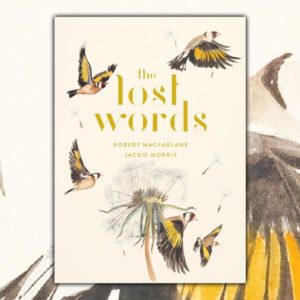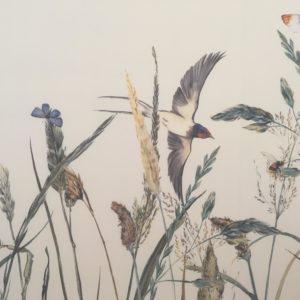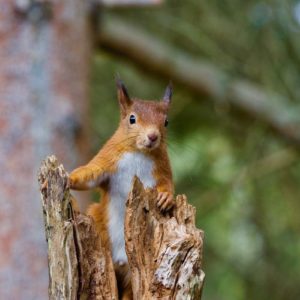Cathy’s favorite book of 2018
My favorite book this year brought goodness and light to 2018 and continues to make me happy as I pick it up and randomly reread a few pages at a time. The book was written as a children’s book, but it is much more than that. Robert MacFarlane is the author of The Lost Words and it was illustrated by Jackie Morris. The Lost Words is an oversized book, and within its covers are pages of “spells” that honor nature with the intent to introduce words to children, words that are disappearing from our language.  Each “spell” is enhanced by Morris’ stunning illustrations. The price of the book is worth it, if just to gaze at her art work.
Each “spell” is enhanced by Morris’ stunning illustrations. The price of the book is worth it, if just to gaze at her art work.
Here’s the backstory to The Lost Words, in 2007 the Oxford Junior Dictionary dropped multiple words that described the natural world. The omissions did not go unnoticed and a feisty public debate over the eliminated words ignited. At one point a group of artists and scientists sent a publicly shared letter to the Oxford Junior Dictionary requesting the deleted words be added back into the next edition. The words, they argued, included many British plants and animals that were symbolic of the nation’s cultural ties with the land and wildlife.
The public letter also referenced research that drew correlations between natural play and wellbeing for children. My only contention with that argument is adults should have been included. There is a correlation between natural play and wellbeing for adults too. Adults should not be overlooked simply because we are not as rosy-cheeked and adorable as a 10-year old when we wander (hobble/limp/stumble) through open meadows and dense forests.

The Lost Words is a response to the Oxford Junior Dictionary omissions and reintroduces the words to young readers. There is an ongoing effort to get this book into all primary schools throughout Great Britain. And you dear readers should make an effort to get the book into your living room. If anything, the book is a gentle reminder that if we lose words for something or lose words that describes the thing, then it is more difficult to understand the essence of it. For me the book is a light tap on the shoulder that signals I have a lot more to learn about the outdoors and the words that are used to name and describe all the bits and glorious pieces out there.
Here is a sample of a “spell” included in the book.
NEWT
‘Newt, oh newt, you are too cute!’
Emoted the coot to the too-cute newt,
‘With your frilly back and your shiny suit and your spotted skin so unhirsute!’
‘Too cute?!’ roared the newt to the unastute coot. ‘With all this careless talk of cute you bring me into disrepute, for newts aren’t cute: we’re kings of the pond, lions of the duckweek, dragons of the water; albeit, it’s true,’ -he paused- ‘minute.’
By the by, McFarlane is one of my favorite follows on Twitter. He shares lost words there too. Here are a few which I have copied directly from his Twitter feed.
Williwaw – a violent squall that blows offshore from a mountainous coast, as cold air descends fast from high ground, accelerated by gravity (etymology unknown).
Rain-bird – common name for the green woodpecker because it was thought to herald bad weather.
A crafty pine-tree rat.

Eichhörnchen – literally, “little horned one of the oak tree”; squirrel (German). In Mandarin Chinese, the characters for squirrel mean, somewhat less poetically, “pine-tree rat”.
Coorie – to hunker down, crouch, nestle, snuggle in, especially when it’s cold, dark & hostile outside (Scots). A winter activity, then, chiefly — though one might “coorie down” to weather of other kinds of adversity.
Willawel – the murmur of wind in the branches of trees, esp. at dusk (Welsh).
Marcescence – in trees & plants, the ‘holding-on’ of dead leaves through the winter months (noticeable especially in beech & oak). A “marcescent” leaf – or, figuratively, person – is one that has withered but not fallen.
Eyot – a small island in a river, also known as an “ayot” or “ait” (all three words are pronounced “ate”).
Brumation – the condition of torpor & sluggishness brought on by winter. Coined in 1965 by the American zoologist Wilbur W. Mayhew to refer to the cold-weather dormancy of reptiles. (By extension, therefore, the indolence induced by Christmas).
Happy Holidays Scramblers. Here’s to a hale and hearty 2019 for each and every one of us.